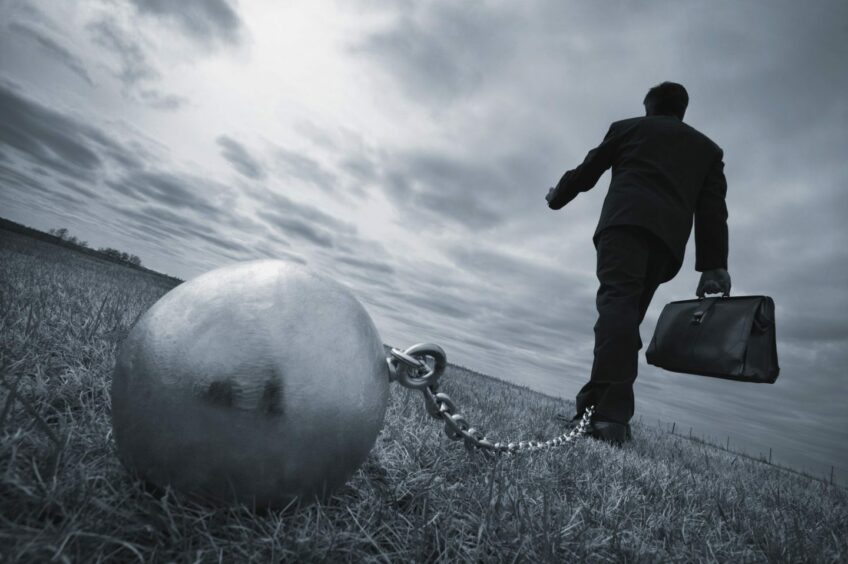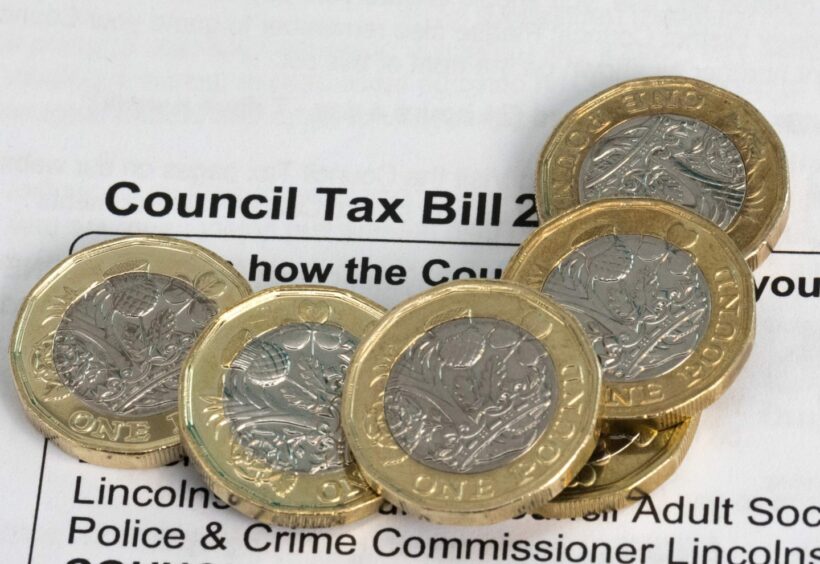Scots turning to a debt advice charity have sunk deeper into arrears for essential bills.
New figures from StepChange Scotland show clients’ average arrears for such bills increased by 29% during 2021.
They typically owed a total of £2,961, compared with £2,302 a year earlier.
StepChange Scotland helped more than 28,600 people last year.
More than 8,400 went through a full debt advice process, with clients increasingly citing the cost of living as a reason for debt.
Scotland in the Red findings
The charity’s latest Scotland in the Red update shows average unsecured debt levels fell slightly – but arrears on essential bills rose dramatically.
StepChange Scotland said this potentially reflects a transition from “the Covid phenomenon of 2020”, when many clients were using credit to cover their essentials.
But this option may now have been exhausted, the organisation warned.
The proportion of clients with an “additional vulnerability” also increased sharply, to a high of 54% – up from 48% in 2020. Worryingly, their arrears situation was also worse.
Vulnerability may be increased due to factors such as physical health conditions, mental health problems, learning disabilities, and sight or hearing difficulties.
StepChange Scotland said these clients faced bigger hurdles in tackling problem debt.
Its data shows 52% of them were at risk of losing their home and 75% in arrears with their electricity bills – and that was before the energy price cap rise this year.
Our recommendations to the Scottish Government and local authorities, if actioned, would help to protect households from the huge leap in the rate of inflation we’re experiencing.”
Sharon Bell, head of StepChange Scotland.
StepChange Scotland wants the Scottish Government and local authorities to commit to additional support for the most financially vulnerable households.
It is recommending debt measures introduced during the pandemic, such as the moratorium extension and tenant support hardship grant, are made permanent.
The debt moratorium allows struggling Scots to trigger a six-month period which is free from any creditor action, so they can take stock of their situation and formulate a plan.
StepChange Scotland said the measure had allowed people who use its services to find new employment, get a debt solution in place or maximise income through welfare.
The charity is also calling for a review of the £150 council tax rebate, or cost of living award, which it says is not helping people in arrears.
The rebate is paid to households in council tax bands A to D to mitigate against rising energy prices during the cost of living crisis.
StepChange Scotland wants councils north of the border to implement “fair treatment” by ensuring debts are collected at an affordable rate and enforcement practices do not push people into further financial difficulty.
Sharon Bell, head of StepChange Scotland, said: “The sharp rise in the cost of living that we’re currently seeing risks triggering a landslide of problem debt for people in Scotland.
“We’re especially concerned to see so many of our vulnerable clients face the prospect of losing their home and being presented with more unaffordable price hikes in energy bills and council tax.
“Our recommendations to the Scottish Government and local authorities, if actioned, would help to protect households from the huge leap in the rate of inflation we’re experiencing.”
Growing number of women contacting StepChange Scotland
Council tax continues to be the most common household bill for StepChange Scotland clients to be struggling with, with 39% of those with a liability to pay – and 44% of vulnerable people – in arrears.
For many years women have been overrepresented among the charity’s clients and last year saw a further two percentage point increase.
The proportion of women contacting the charity grew to 60%, from 58% in 2020.
Nearly two-thirds (63%) of vulnerable clients were women.
Shocking new figures highlight scale and disparities of Britain’s cost of living crisis




Conversation